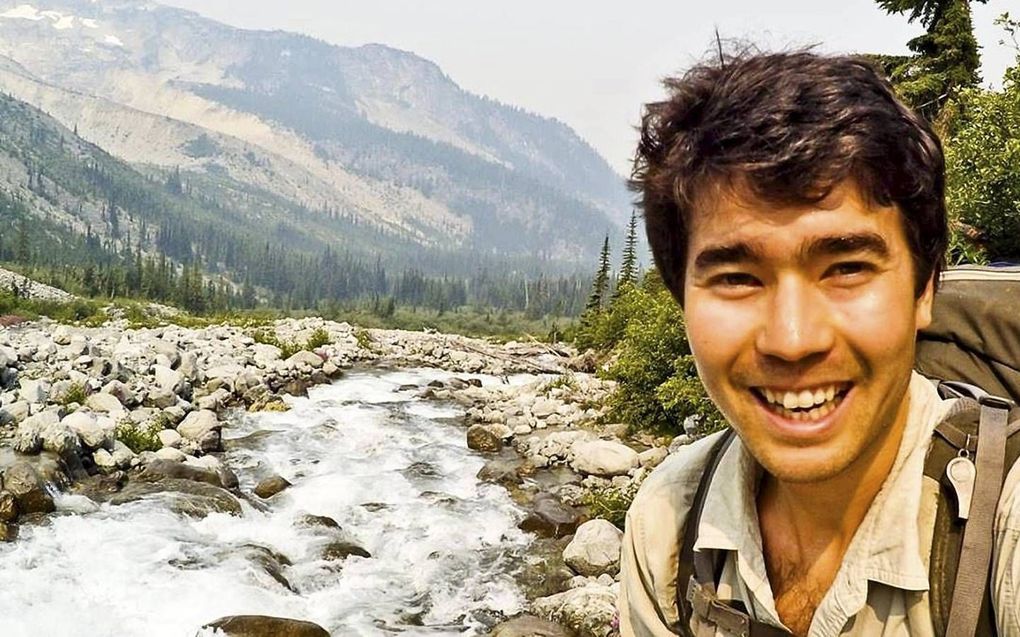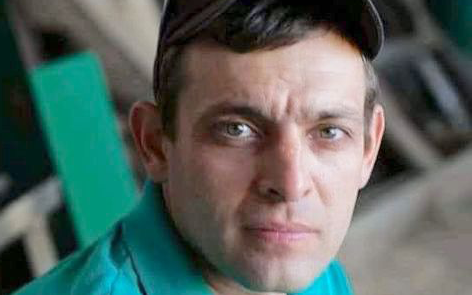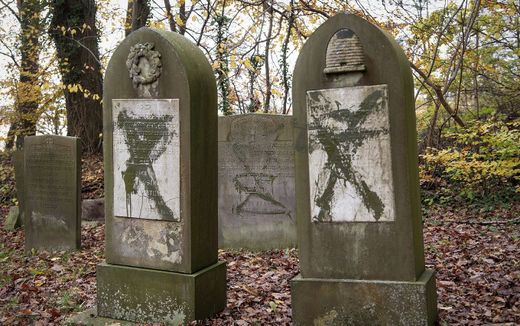When missionary work takes your life
04-06-2022
Christian Life
Eunice Hoekman-Stuijvenberg, RD

Chau. Photo Facebook
Christian Life
Since the Pentecostal fire started burning, Christians have been going out to reach unreached peoples. That work is not without danger. In November 2018, the life and mission of the young missionary John Chau was abruptly ended on a sinister island in the Indian Ocean. After his death, Chau was heavily criticised. What does this reaction tell us about the public opinion on missionary work in the 21st century? And to what extent may a missionary take risks in doing his work?
After a decent preparation, missionary Jim Elliot and four colleagues make contact with the Aucas in 1956. The Aucas are a native people in Northern Ecuador. They are well prepared. The men know the risks of their mission. Through the centuries, the Aucas have killed people, like the Jesuit priest Pedro Suarez in 1667. Many years later, the Aucas kill three employees of the Dutch oil company Shell, in 1942.

From a safe height, with the help of a little mission plane, the missionaries make a careful start. Via a microphone, they shout sentences in the Auca languages: “We love you” and “We are going to visit you.” Presents are sent back and forth with the help of a rope.
The coast seems to be clear, the soil fertile for the Gospel. Somewhere on a beach in the Auca region, the men pin down their tents. After several days of intensive waiting, three members of the tribe show up, two women and a man. There is some poor communication, and the missionaries show elastics, balloons and a yoyo. They also serve lemonade and hamburgers.
At night the visitors disappear again. The missionaries long for another visit and an invitation from the Indians. The next day, a group of Aucas does indeed come to the campsite on the little beach. But not with friendly intentions. They pierce the missionaries with their spears.
Killed in loneliness
Over sixty years later, in November 2018, 26-year-old physician and missionary John Allen Chau is getting ready for his first meeting with the inhabitants of the tropical island of North Sentinel, part of the Andaman Islands. Chau knows what is at stake. The residents of Sentinel attack unknown visitors, whether they be anthropologists or local fishermen, because they want to keep them off the island. In 2006, they killed two fishermen who got too close to their territory. However, these facts do not stop the American from carrying out his plan.
With the help of Christian fishermen, the missionary approaches the island on Friday, November 16. At a safe distance, the boat anchors; the fishermen do not dare to go any further. To put the Sentinelese at ease, Chau paddles in his underwear to the shoreline in a kayak. "My name is John," he shouts to the islanders, who rush out of their huts with yellow-painted faces. "I love you and Jesus loves you."
As the men tighten their bows, Chau panics, throws the fish he had brought as a gift for them, and returns to the fishing boat. Later that day, he makes another attempt. Six watching tribesmen do tolerate him coming ashore, but the encounter ends with an arrow stuck in his Bible. Once again, Chau must retreat.
What exactly happens the next morning is unclear. The young American does not want to endanger the fishermen any further and therefore travels a considerable distance alone. At some point, the men see from afar how the Sentinelese carry a body across the beach and bury it in the sand. John Chau has been killed.
Public sympathy for native tribes
The stories of Jim and John are in part identical. However, the reactions that follow their deaths are completely different. The news of the death of the five pioneers shocks the world in 1956. Jim Elliot and his team make the front page of the famous American weekly Life Magazine. Their story goes viral and inspires people to dedicate their lives to mission. Four of the five widows continue the work of their late husbands.
The death of John Chau in November 2018 also becomes world news, but the tone of the reactions is predominantly negative and dismissive. At least, the Dutch news coverage shows that sympathy lies with the islanders, who should have the right to protect their culture and way of life.

The end does not justify all means, says professor of missiology Dr. Stefan Paas to the Dutch daily Reformatorisch Dagblad, then still ignorant of the backgrounds of the mission. Another Dutch columnist, Ephimenco, believes that, as an outsider, you should not try to impose your religious doctrines, your ideological certainties, your norms, values and customs on a native group.
A radio host asks cultural anthropologist Tessa Minter: “Your own fault, was the summary everywhere, do you think that’s right?” Minter refuses to answer this question out of respect for Chau and his family. She emphasises, however, that it is rare today for “someone to go out on their own, without organisational embedding” to knowingly approach an isolated tribe. “Usually, these people work with very thoughtful organisations today, and he hasn’t done that. In that sense, his story is not representative.”
Well-prepared, yet killed
From other – especially social – media, a picture emerges of a reckless fanatic who enters a forbidden area without any preparation and without considering that he is endangering himself and the islanders. The latter in particular anger people. Humanity would be better of without such crazy religious fanatics, forums read. For Elliot and his friends, there was praise and respect, Chau mostly awaited disgust and disapproval.
In the months that follow, the granular picture of the mission becomes increasingly sharp. Chau's journey is far from unprepared, as it turns out. The American successfully completed training in sports medicine and trained as an EMT, where doctors learn to act quickly and effectively in medical emergencies and traumatic injuries.
The several vaccinations he received were intended to prevent him from endangering the health of the isolated population. For the same purpose, he spent many days in quarantine before travelling to the island. In addition, the unmarried Chau studied at a renowned language institute in the hope that he would be able to map the hitherto undocumented language of the isolated tribe.

In 2016, he knocked on the door of All Nations, an international missionary organisation that focuses primarily on "ignored" groups such as gangsters and refugees (not to be confused with the All Nations Christian College in Britain). Having encountered isolated tribes on the Andamans during an earlier mission trip, he was determined to tell the residents of North Sentinel about the love and goodness of Jesus Christ. "That was his life's calling," director Mary Ho of the missionary organisation said in late November during a podcast interview with Christianity Today. Every decision he made was focused on that. The All Nations family, founded by Floyd McClung, trains its staff to share the love of Jesus while respecting the local culture.
Green light for missionaries
The mission organisation does not take the risks of a mission lightly. Each mission is considered and evaluated from all angles. Numerous factors play a role in the consideration: mental, physical and emotional health, personality, knowledge of the culture, whether the worker has a spouse and children and how his family perceives his calling. All Nations sometimes turns people away. There are also times when it recommends someone an alternative destination.
Chau, with his poised, calm personality, physically well prepared, apparently got the green light. Although All Nations advises missionaries to go out at least with two people, Chau decided on a solo trip. He knew he was entering a dangerous situation and did not want to jeopardise the safety of others, the statement reads. Should the missionary organisation have stood firm? Another question is why the American continued to seek contact with the tribe when the Sentinelese had welcomed him with arrows the day before.
But whatever errors of judgment may have been made, the accusation that Chau acted reckless, careless and without any organisational embeddedness is unjustified. The vehemence of the responses indicates that there is something else teetering beneath the surface of this discussion.
Increasing focus on equality of sending and receiving party
The well-known evangelical pastor and missiologist Ed Stetzer points out in an opinion article on Christianity Today that the whole idea of a Protestantism that seeks to make converts is antagonising many in the Western world today. The history of missionary and evangelistic work is full of stories of courage, bravely borne martyrdom, and positive change, but it is also marked by failure, colonialism, and cultural blunders. These problems have shaped and influenced the public opinion about missionary work. In response, there has been an increasing focus on the equality of and reciprocity between the sending and receiving parties.
Rev. J. P. Ouwehand, director of the Dutch Reformed Missionary Union (GZB) suspects that the revulsion stems primarily from cultural relativism. That is what he says in a comment to the Reformatorisch Dagblad. "Who even wants to propagate anything nowadays, let alone force someone to adopt other thoughts? The result is that the transmission of faith languishes. At least, where God and the place of religion in society are concerned. The transmission of our Western norms and values regarding marriage and human rights we still consider important."
A tweet by Dr. Paas, posted after Chau's death went viral in the Netherlands. It has that same tenor. "Here in the West, hardly anyone can imagine anymore that you would be willing to die for your worldview." An important question is whether that statement also applies to Christians. You might think that they - who, after all, want to respond to the command of Jesus Christ and believe that everyone needs the Gospel - could still imagine it. Or at least that they should be willing to suffer for their conviction.
Was the reaction of Christians to the risky trip and death of John Chau substantially different from the general noise? Is not the death of a missionary the ultimate consequence of obedience to the missionary command? History shows that the work of Jim Elliot and his friends bore fruit. The murderer later repented and an Auca church arose in the jungles of Ecuador. Elliot wrote the famous words, "He who gives what he cannot keep to gain something that he cannot lose, is no fool.”
Blogger Johan van Veen noted in late 2018 that there is little sympathy for someone like Chau, even among orthodox Christians in the Netherlands. Indeed, the Christian newspapers more or less keep a low profile. There is no one who defended Chau's performance.
“People do not go lost because we did not tell them about God”
In any case, it appears that opinions vary widely on how and why to evangelise and which Message should be brought. One could argue about how useful missionary work is if the target group rejects it. In this regard, what do Jesus' prohibition to cast no pearls before swine and His command to shake the dust from the feet mean if the proclaimers of the Message are not welcomed?
Another point of discussion is whether wanting to save souls from eternal punishment can be a good motivation for missionary work. American evangelicals, for whom the Great Commission (the missionary command from Matthew 28) is an important starting point, are widely criticised on this point. Their "extreme Christianity" and "hell-based ethics" are said to have driven John Chau to his death.

Of course, evangelism is about the reality of being lost, says Rev. Ouwehand, who lived in South Africa with his family from 1990 to 1999. "Hell is a Biblical fact that you have to be serious about. But we don't believe that someone is lost because we haven't told him the Gospel, do we? Then missionary work would depend on people's efforts."
Theological motives of evangelists are not always pure. "Some want to reach isolated peoples to hasten the Second Coming of Christ. Especially in the nineteenth century that thought was prevalent, and still there are people who think like that. When we have reached the last person, Jesus will return. That is not the task the Bible gives us. Christ's love and compassion for people should drive us."
Missionary organisation takes safety very serious
And then the safety issue arises again. How much risk should you take on the mission field, even when you are well prepared? The GZB director is careful not to pass judgment on the way Chau operated and wants to be "extremely careful" in giving his opinion. "At the moment that someone, on grounds he deems to be good, makes a choice that results in this ultimate price, then it is best to remain silent as bystanders. Then it's our question: how do we make the trade-off?"
When Ouwehand talks about how the missionary organisation GZB handles risk, he is nonetheless clear. "I would have made different choices. God is not dependent on my action and my deeds. When we cannot go somewhere, He has other options to reach people. We also don't need to think frenetically that if we don't go, God can't reach them. That gives room to deal with questions of security in a responsible way."
Taking responsibility as a missionary organisation, means taking the safety of people very seriously, the pastor-director says. That does not mean that nothing can happen to missionaries, he notes. When missionaries die, it is usually from a car accident. The GZB would most likely not cross the Indian island border. "Not because we necessarily want to abide by the law. After all, we work in numerous countries where the government prohibits evangelism. The question here is: as a Westerner, are you taking an unnecessary risk by entering this area? Martyrdom should never be deliberately sought. Even in the early church, this was clear. We live in a broken world in which things can happen to you, despite all our good thinking. Then you can be in the wrong place at the wrong time. That's martyrdom. But we should never seek for it."
Faith mission and church mission
Although missionary organisation All Nations advised John Chau against going out on his own, the young American was not deterred from his plan.
British historian William Svelmoe points out in an online publication that Chau's activities are rooted in evangelical mission, as it arose in the U.S. during the nineteenth century.
Missionaries were initially well trained and well maintained. This changed when leaders felt that the Christianisation of the world was not progressing fast enough. After all, the eternal preservation of people was at stake. Thus, a period followed in which missionaries were hurriedly sent out into the world without too much preparation, often also without knowing how to make a living.
According to Svelmoe, this "haste" lies at the heart of evangelical broadcasting in the late nineteenth century. This is the beginning of what later came to be called faith missions. Dozens of missionary movements arose, all seeking to reach a specific part of the world, such as the China Inland Mission, the Sudan Interior Mission, and the Central American Mission.
That accidents happened is not surprising, according to Svelmoe. For example, around the year 1890, all sixteen recruits sent to Africa by the Africa Inland Mission died or quit. A. T. Pierson, a driving force behind this early faith mission, wrote in response: "The hallmark of God for any work is death. God has given us that hallmark. Now is the time to move forward."
According to the historian, the death of workers was accepted as something that came with the job. However, official estimates of the number of deaths are not available. The board of the Nazarene Missions International once sent a letter to two sick missionaries saying: "We assume you have already died.” It explained that no money for living expenses would be sent that month. The missionaries recovered.
Traditionally, faith-based mission emphasises the personal calling and faith of the missionary, whereas church-based mission is primarily based on congregational calling and shared responsibility. In the latter case, a mission worker is accountable to the (church) mission organisation. "If we decide to withdraw someone because of his or her safety, then that person must obey," Rev. J. P. Ouwehand, director of the GZB, explains. "After all, the organisation is liable."
According to him, however, the distinction between faith missions and church missions is much less sharp than it used to be, especially when it comes to the safety of those being sent out. "Faith missions have evolved considerably in this regard. An organisation like OMF uses an extensive safety protocol. And from Congo, workers from Wycliffe – a faith mission – and the GZB – a church based mission – left simultaneously. Today, everyone is struggling with the same issues, except maybe a few organisations still working from the old paradigm, or people working individually."
This article was translated by CNE.news and previously published in Dutch daily Reformatorisch Dagblad on June 10th, 2019.
Related Articles





